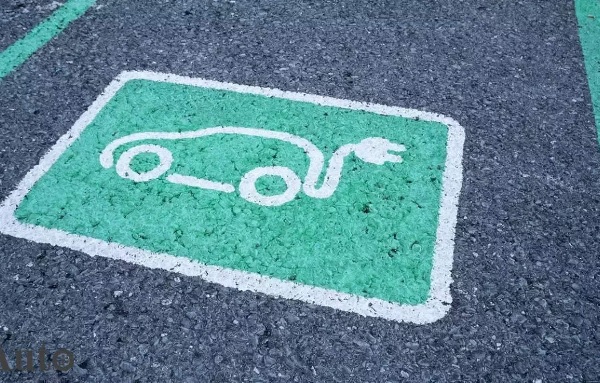
One of the biggest environmental challenges faced by mankind today is the rapidly rising carbon emissions leading to global warming and extreme climate crisis across the globe. A major contributor to the rising carbon footprint is the transport sector which requires urgent steps to mobilise people to move to a climate-conscious and environment-friendly way of commute. The growing popularity
Electric mobility seems like a promising solution to curb carbon emissions however EV adoption is still at a nascent stage in India. It currently faces several challenges such as a lack of robust infrastructure for charging stations, higher upfront costs, and limited awareness among the larger audience regarding the numerous benefits of switching to an electric vehicle. Resilient efforts to strengthen the charging infrastructure are required to create a holistic ecosystem and promote wider adoption of EVs across the country.
Sharing his view Tushaar Bajaj, Co-Founder and Director, Virtus Motors says, “World Environment Day plays a crucial role in creating wider awareness regarding environmental issues and highlights the pressing need to take urgent measures for planet protection and a sustainable future. One of the major contributors to environmental degradation is the transport sector. As the world is making concerted efforts towards cleaner and sustainable energy sources, electric vehicles (EVs) have emerged as a promising solution to significantly reduce carbon emissions from the transport sector. India with its largest population and rapidly growing economy is also facing major environmental concerns including alarmingly high levels of air pollution. However, recent government initiatives like the Faster Adoption and Manufacturing of Hybrid and Electric Vehicles (FAME) scheme and the National Electric Mobility Mission Plan (NEMMP) have provided some incentives and benefits to manufacturers and consumers to boost EV sales. Moreover, the Indian government has also planned to shift to 100 per cent electric public transportation by 2030.
He further adds, “While India has made progress in promoting EV adoption, there is still a long way to go. Despite several efforts, the adoption of EVs in India has been limited due to challenges like a lack of robust charging infrastructure, high upfront costs of EVs, and limited choices in EV models. Addressing these issues and improving its EV ecosystem will play a crucial role in helping India rapidly transition toward a sustainable transport system. By implementing effective policies and taking necessary steps, India can boost the EV ecosystem and become a global leader in the shift towards a cleaner and a greener future.”
In addition to this Amit Raj Singh, co-founder and MD, of Gemopai, a leading manufacturer of electric scooters in India “India’s potential for leading the transition towards sustainable mobility is immense. The country’s commitment to reducing carbon emissions and promoting clean energy solutions has set the stage for an EV revolution. The government’s ambitious plans, such as the Faster Adoption and Manufacturing of Electric Vehicles (FAME) scheme, have incentivized EV adoption and infrastructure development. Collaborations with international manufacturers and investments in research and development have propelled the growth of domestic EV manufacturing capabilities. Moreover, India’s vast population and expanding middle class present a significant market for EVs. The rising awareness about environmental issues, coupled with increasing fuel prices and the desire for cost-effective transportation, creates a favourable environment for the widespread adoption of EVs. India needs to invest heavily in expanding charging networks, promoting innovative business models, and incentivizing research and development to reduce costs and improve battery technology. India’s readiness to adopt the EV ecosystem hinges on a multi-dimensional approach that involves government policies, industry collaboration, and public participation.”
Setul Shah, Founder of RunR Mobility says, “India has shown significant progress in recent years in promoting the adoption of electric vehicles. The government has implemented various initiatives and policies to encourage the transition from traditional fossil fuel-powered vehicles to cleaner and greener alternatives. With a strong commitment to reducing carbon emissions and combating pollution, India has set ambitious targets for electric mobility, aiming for 30 per cent electric vehicle penetration by 2030. Challenges remain on the path to widespread adoption of electric vehicles in India. The lack of charging infrastructure across the country is a significant hurdle that needs to be addressed. Developing a robust and widespread charging network, both in urban areas and along highways, is essential to alleviate range anxiety and ensure the seamless operation of electric vehicles.
“India holds immense potential to embrace the EV ecosystem and pave the way for a greener future. With concerted efforts and progressive policies, India can accelerate the transition toward electric vehicles. From promoting indigenous manufacturing to establishing robust charging infrastructure, the nation can foster a sustainable transportation revolution. By embracing electric mobility, India can reduce carbon emissions, mitigate air pollution, and promote energy security. The time is ripe for India to take bold strides towards adopting the EV ecosystem and lead the way in creating a cleaner and greener environment for generations to come,” adds Dr Anshul Gupta, Managing Director, of Okaya Electric Vehicles.
As we celebrate World Environment Day, India’s remarkable progress on the path to embracing an electric vehicle ecosystem is evident. Through proactive government policies, infrastructure development, manufacturing investments, public awareness campaigns, and technological advancements, India is well on its way to realizing a cleaner and greener transportation sector. While challenges remain, the collective efforts of all stakeholders position India as a promising contender in the global shift toward sustainable mobility













